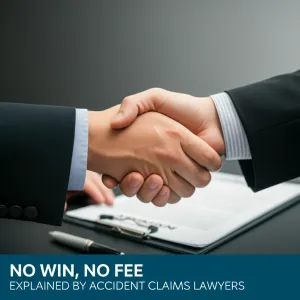Questions to Ask Injury Law Firms Before You Decide to Hire
- account_circle admin
- calendar_month Sel, 2 Sep 2025
- visibility 229
- comment 0 komentar

Questions to Ask Injury Law Firms Before You Decide to Hire
Empower Your Choice: Essential Questions to Ask Injury Law Firms Before Hiring
KlikBabel.com – Questions to Ask Injury Law Firms Before You Decide to Hire. Suffering a personal injury can be a profoundly stressful and disorienting experience. Beyond the physical pain and emotional toll, you’re often left grappling with mounting medical bills, lost wages, and the daunting prospect of navigating a complex legal system. Deciding which personal injury law firm to entrust with your case is one of the most critical decisions you’ll make, directly impacting your potential for fair compensation and peace of mind.
But how do you choose? With countless firms vying for your attention, simply picking the first one you see can be a costly mistake. The key lies in asking the right questions during your initial consultation. These questions empower you to assess a firm’s experience, approach, and suitability for your unique situation, ensuring you make an informed decision that best protects your rights and future.

Questions to Ask Injury Law Firms Before You Decide to Hire
Here are the essential questions to ask injury law firms before you decide to hire:
I. Experience and Expertise: Is This Firm Right for My Case?
Not all personal injury cases are the same. A firm specializing in car accidents might not be the best fit for a complex medical malpractice claim.
- What is your experience with cases like mine?
- Why it matters: Look for specific examples. Has the attorney handled cases involving your type of injury (e.g., spinal cord, traumatic brain injury, slip and fall, truck accident, product liability)? Do they understand the nuances of the specific laws and precedents relevant to your situation?
- How many personal injury cases do you typically take to trial versus settle?
- Why it matters: This reveals their strategy and willingness to fight. While many cases settle, a firm that never goes to trial might be too eager to accept lowball offers. Conversely, a firm that always pushes for trial might prolong the process unnecessarily. You want a firm capable and willing to do both, based on your case’s best interest.
- What is your success rate in personal injury cases?
- Why it matters: While past results don’t guarantee future outcomes, a strong track record of favorable settlements and verdicts indicates competence and effective advocacy. Ask for examples of similar cases they’ve handled and their results.
- Are you a certified specialist in personal injury law (if applicable in your state)?
- Why it matters: Some states offer specialized certifications. While not mandatory, it demonstrates a higher level of commitment and expertise in the field.
II. Fee Structure and Costs: Understanding Your Financial Commitment
Legal fees are a major concern for many. Transparency about costs is non-negotiable.
- How do you charge for your services (contingency fee, hourly, etc.)? What percentage do you take?
- Why it matters: Most personal injury firms work on a contingency fee basis, meaning they only get paid if you win your case. Understand the percentage (typically 25-40%) and if it changes based on the stage of the case (e.g., higher if it goes to trial).
- What costs and expenses will I be responsible for, and when are they due?
- Why it matters: Beyond the attorney’s fee, there are “costs” associated with a case (filing fees, expert witness fees, investigation costs, deposition costs, postage, etc.). Will the firm advance these costs, and if so, how and when will you reimburse them? Do you pay them if you lose? Get a clear breakdown.
- Are initial consultations free?
- Why it matters: Most reputable personal injury firms offer free, no-obligation consultations. This allows you to discuss your case and assess the firm without financial pressure.
III. Case Management and Communication: What to Expect Day-to-Day
You need to know how your case will be handled and how you’ll stay informed.
- Who will be my primary point of contact, and how often can I expect updates?
- Why it matters: Will you primarily deal with the lead attorney, a paralegal, or another team member? Understand their communication policy (e.g., weekly calls, monthly emails, client portal). Consistent communication is crucial for reducing anxiety and staying informed.
- What is your estimated timeline for my case?
- Why it matters: Personal injury cases can take months or even years. While no firm can guarantee a precise timeline, they should be able to provide a realistic estimate based on the complexities involved (e.g., investigation, negotiation, litigation).
- What resources does your firm have (e.g., investigators, expert witnesses)?
- Why it matters: Complex cases often require specialized resources. A firm with established relationships with accident reconstructionists, medical experts, economists, and private investigators can build a stronger case.
- What is your strategy for my case, and what role will I play?
- Why it matters: Ask about their initial assessment and proposed approach. Will they pursue settlement, arbitration, or prepare for trial? Understand what information they’ll need from you and how you’ll be involved in key decisions.
IV. Firm Philosophy and Client Advocacy: Building Trust
Beyond numbers and processes, trust and rapport are vital.
- What do you believe are the strengths and weaknesses of my case?
- Why it matters: A good attorney will be honest and realistic, not just tell you what you want to hear. They should identify potential challenges and explain how they plan to address them.
- What makes your firm different from others?
- Why it matters: Listen for their unique selling proposition. Do they emphasize personalized attention, aggressive advocacy, innovative legal strategies, or a particular client-focused approach?
- Can you provide client testimonials or references?
- Why it matters: Hearing directly from past clients can offer invaluable insight into a firm’s service quality, communication, and overall effectiveness. Check online reviews as well.
V. Availability and Caseload: Will You Get the Attention You Deserve?
A busy firm isn’t necessarily a bad firm, but an overloaded one might struggle to give your case the attention it needs.
- What is your current caseload?
- How accessible are you to clients? What’s your typical response time for calls or emails?
- Why it matters: You’ll have questions and concerns throughout the process. Knowing you can reach your legal team and get timely responses is essential for a positive client experience.
By diligently asking these questions, you transform a potentially overwhelming decision into a structured, informed process. Remember, you are interviewing them as much as they are evaluating your case. Choose a firm that not only possesses the legal acumen but also instills confidence, communicates clearly, and genuinely advocates for your best interests. Your recovery and future depend on it.
FAQ
Q1: How much does it cost to hire a personal injury lawyer?
A1: Most personal injury lawyers work on a contingency fee basis. This means you don’t pay any upfront legal fees. Instead, the attorney’s fee is a percentage (typically 25-40%) of the final settlement or court award. If you don’t win your case, you generally don’t owe the attorney a fee, though you might still be responsible for case-related expenses.
Q2: How long does a personal injury case usually take?
A2: The duration of a personal injury case varies greatly depending on its complexity, the severity of your injuries, the willingness of the other party to negotiate, and whether the case goes to trial. Simple cases might settle in a few months, while more complex ones involving extensive medical treatment, multiple parties, or litigation can take one to several years. Your attorney should be able to provide a realistic estimate during your consultation.
Q3: Do I really need a lawyer for my injury case, or can I handle it myself?
A3: While you can technically handle a personal injury claim yourself, it’s generally not advisable. Insurance companies have vast resources and experienced adjusters whose primary goal is to minimize payouts. An experienced personal injury lawyer understands the law, can accurately assess the value of your claim (including future medical costs and lost wages), negotiate effectively, gather crucial evidence, and represent you in court if necessary. They significantly increase your chances of securing fair and maximum compensation, often leading to a much better outcome than you could achieve alone.
- Penulis: admin












Saat ini belum ada komentar